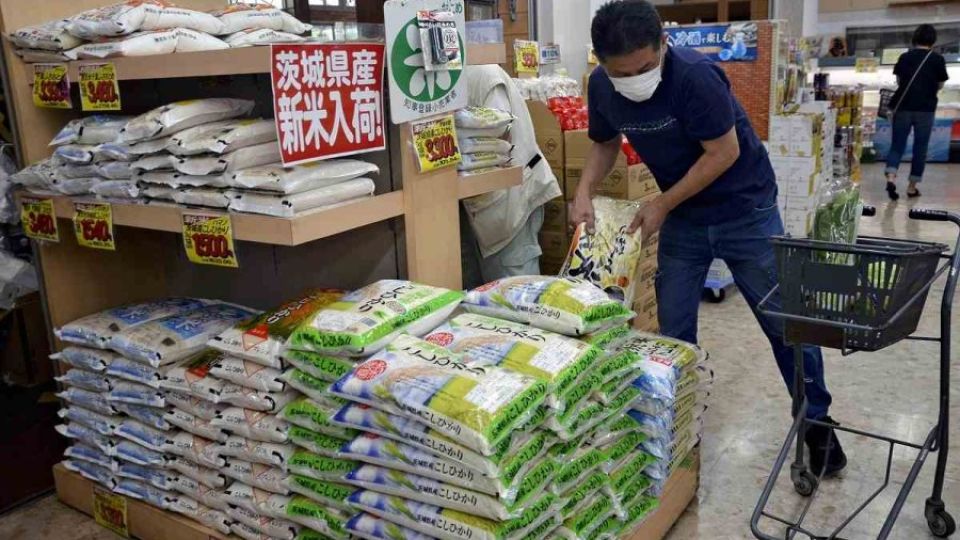September 10, 2024
TOKYO – Rice harvested in fiscal 2024 has arrived on supermarket shelves and elsewhere this month, easing stores’ shortage. However, consumers are still hit hard as prices of the new rice are higher than rice from fiscal 2023 by a whopping 30%-50%.
On Friday afternoon, more than 50 bags of 5 kilograms of rice newly harvested in Ibaraki and Chiba prefectures were piled up at Super Sanyo, a supermarket in Adachi Ward, Tokyo. The price was over ¥3,000 per bag, about 1.5 times more expensive than last year.
“The shortage has been resolved with the arrival of new rice, but we can’t help but raise the selling price because the wholesale price is high,” said an executive officer of the company operating the supermarket. “While the price is high, we may lose customers,” he added, looking concerned.
Tokyo, Osaka and other major consumer cities in Japan were hit with a shortage in August due to insufficient rice harvested in 2023, as well as consumers stockpiling rice in response to the Nankai Trough Earthquake Extra Information advisory, an alert against a potential mega-earthquake. Sales of newly harvested rice have begun in September, but its price is high because of an imbalance in supply and demand. Industry sources say the increase from last year is between 30%-50%.
“By late this month, when the newly harvested rice has been sufficiently distributed, the shortage should be resolved and this unusually high price brought down,” said Yasufumi Miwa, a chief specialist researcher at the Japan Research Institute, Ltd., an expert in rice distribution. But he also said price hikes are impossible to avoid with the increase in rice production costs, such as for fertilizers and fuel.
“The price is likely to remain at a level about 10% higher than last year,” he said.

